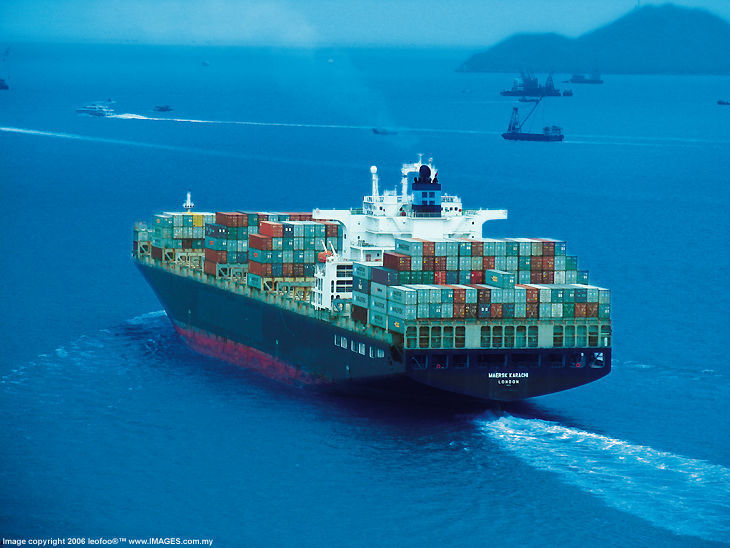Claim Against Affiliated Companies Could Not be Brought Forward Against the Local Carrier
by Editor | Feb 22, 2016 | Case Summaries |

Aage Krogh, IUNO Denmark
The Danish Maritime and Commercial High Court has established that a toy manufacturer could bring forward a claim against a Danish transport company, but not against the affiliated Czech company. The claim was based on a transport, which the Czech sister company had arranged. However, the specific transport was a part of a large contract, for which the Danish transport company had been in charge of bidding on a call for tender on behalf of the whole transport group. The Court found that the Czech sister company was not bound by a jurisdiction clause in the tender documents. For that reason, the Court dismissed the case against the Czech company.
A Danish toy manufacturer issued a call for tender regarding transports from the Czech Republic. In the Czech Republic the toy manufacturer owned a central warehouse from where goods were to be transported to various places in Europe. A foreign transport group won the tender via its Danish company, which was in charge of all communication regarding the call for tender. Subsequently, the practicalities were discussed locally in the Czech Republic, where a written procedure for the collaboration was formed.
During carriage from the central warehouse in the Czech Republic to Slovakia, a load of goods was lost. For that reason the toy manufacturer initiated legal proceedings in Denmark against the Danish transport company which had been in charge of the call for tender procedure on behalf of the whole transport group, and against its Czech sister company, which had arranged the specific transportation.
During the court proceedings, two questions were to be decided by separate trial. Firstly, whether the Danish transport company was the correct defendant, and secondly, whether the case against the Czech sister company could be brought forward in Denmark.
Who was the Contracting Carrier?
Whether the Danish transport company was the correct defendant depended on whether the company was to be regarded as contracting carrier in relation to the specific transport. The Danish transport company argued that it had only been in charge of the communication regarding the call for tender for the overall framework agreement.
The manufacturer thought that the Danish transport company was contractually responsible for all transportations performed on the basis of the call for tender. For that reason, the Danish company should be regarded as contracting carrier, even though the transportations were performed by affiliated companies. The manufacturer also stated that it did not matter, that the manufacturer had booked that specific transportation directly with the Czech company – not through the Danish company.
Was the Czech Company Bound by Provisions in the Tender Documents?
The manufacturer had also claimed damages from the Czech sister company which had arranged the specific carriage. The Czech company had been listed as ‘carrier’ in the CMR consignment note.
The venue for the Czech company was the Czech Republic, but a provision in the tender documents stated exclusive jurisdiction in Denmark. The question was whether the jurisdictional provision in the tender documents was binding for the Czech company, even though it was the Danish company that bid on the call for tender.
The Danish Maritime and Commercial High Court: Danish Company “Bound” – Case Against Czech Company Dismissed
The Danish Maritime and Commercial High Court found that the Danish transport company was to be regarded as contracting carrier. The Danish company had provided information in answering the call for tender and it had given price offers in the “call for tender” online platform. Additionally, the Danish transport company had held a meeting with the toy manufacturer, where the company had provided material. The Court found that this material left the impression that the transport company was presented as one whole enterprise.
In relation to the Czech company the Court found that the company was not bound by the jurisdictional clause in the tender documents. For this reason the Danish company could not place an obligation on the sister company, which was an independent company, by negotiating with the manufacturer. In conclusion the manufacturer could not bring forward the claim against the Czech company in Danish courts.
IUNO’s Opinion
This judgment illustrates how difficult it can be to tell which companies are bound, when a large group bids on a call for tender. Depending on the circumstances, sister companies may be regarded as subcontractors or as part of the main framework agreement. The outcome may have great effect in case a claim arises between the parties.
The judgment also shows that one cannot assume that companies which are not a direct contracting party are covered by a jurisdictional clause in tender documents – regardless of whether the contracting party was an affiliated company.
However, this is not necessarily so. In a previous ruling by the Danish Maritime and Commercial High Court, the Court found that a sister company was covered by a British jurisdictional clause in a framework agreement. You can read more about that ruling http://us2.campaign-archive2.com/?u=bbd628ed170b7c60bba01aeac&id=fe8680fbba] here.
Ref: The Danish Maritime and Commercial High Court judgment of 21 April 2015, case no. H-42-13